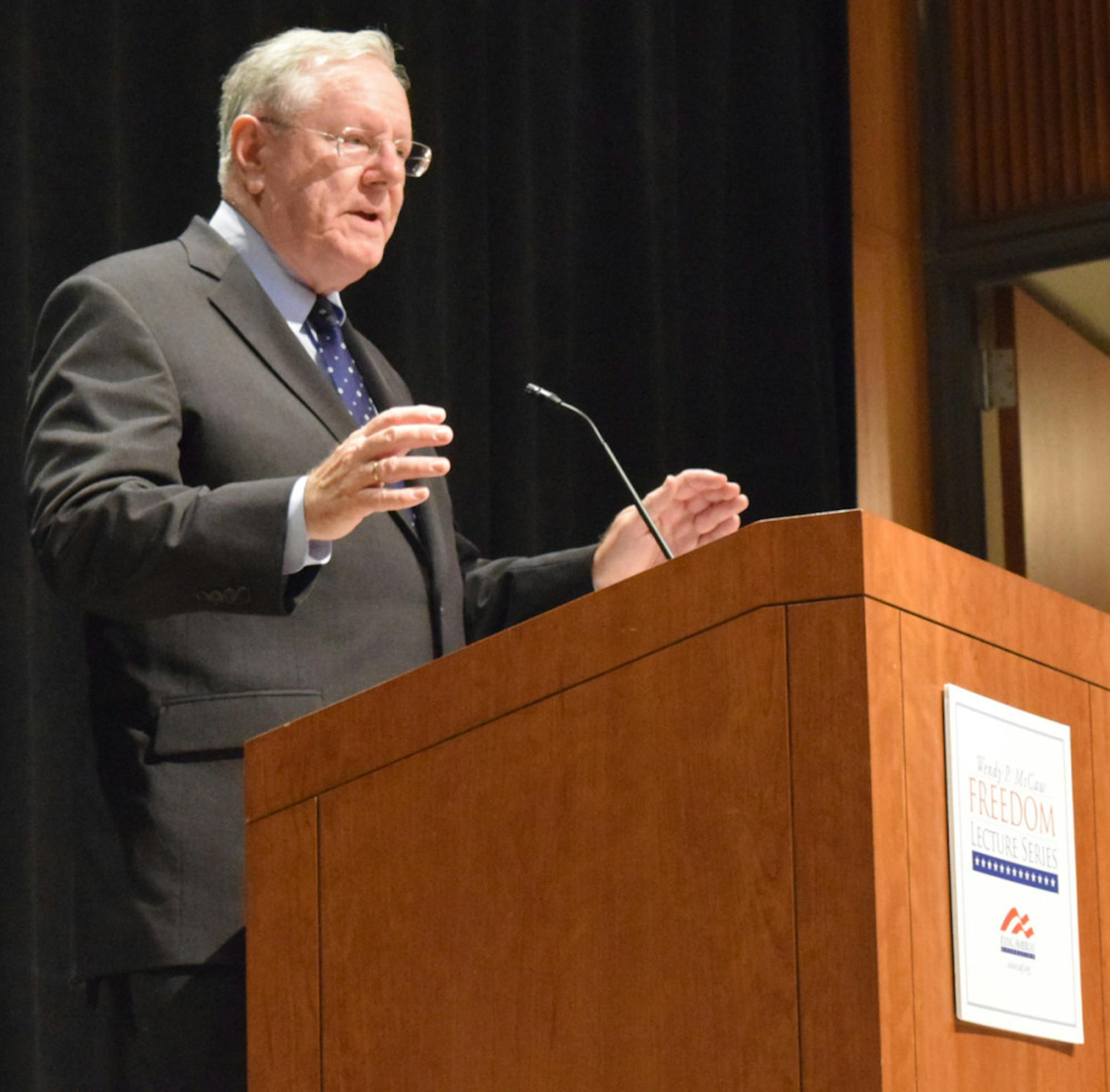Capitalism has been falsely maligned as an amoral or even immoral system, according to Steve Forbes.
Chairman and editor-in-chief of Forbes Media and a former presidential candidate, Forbes was invited by Young Americans for Freedom, the Potenziani Program in Constitutional Studies and the Tocqueville Program to speak on “Morality and Capitalism” in Hesburgh Library’s Carey Auditorium on Thursday evening.
Forbes began the lecture by discussing how capitalism is portrayed in popular culture and by Hollywood specifically. According to Forbes, films and TV shows characterize businessmen as greedy villains willing to sacrifice all ethical principles in search for profits.
“Research has shown that in the movies, businessmen kill more people than serial killers do,” Forbes said.
However, Forbes said this vicious stereotype rarely reflects reality, and in fact, the marketplace actually encourages moral behavior.
“The reason that commerce is based on morality is very simple: In true free markets, you succeed by meeting the needs and wants of other people,” he said.
This principle of cooperation extends not only to how companies interact with consumers, Forbes said, but also to how businesspeople and entrepreneurs work together to form corporations.
“When we say the word corporation you think big, cold and greedy, but the fact of the matter is corporations are about working together towards a common goal,” he said.
Forbes also said the concept of comparative advantage is key to understanding how the exchange of goods and services works.
He said Steve Jobs and Steve Wozniak, the duo behind Apple, utilized their different strength to lead the personal computing revolution. Jobs’s understanding of consumers and the marketplace helped him lead Apple’s business development and sales, while Wozniak’s technical knowledge and engineering background allowed him to perfect the actual products themselves.
Forbes cited the essay “I, Pencil” by Leonard Read as an example of how even the most seemingly simple products require a sophisticated web of cooperation in order to be successfully manufactured and sold.
Nonetheless, Forbes said, finding this kind of success is often a difficult task that involves repeated failure.
“Sometimes there’s prodigies, but most of us have to learn the hard way,” he said.
As an example, Forbes discussed the bankruptcies of Henry Ford before he successfully manufactured and sold the original Model A.
Forbes said capitalism’s process of creative destruction and progress through competition gives opportunities to a greater amount of people than do more stratified systems.
“It enables people from the most unlikely backgrounds to rise up,” he said.
Ray Kroc, the cofounder of McDonald’s Corporation, embodies the ideal of the unlikely entrepreneur, Forbes said, because of his initial struggles and later meteoric rise to the top of the business world.
“He was a guy in his 50s who had never achieved great success and was selling milkshake machines in California,” he said.
Yet Forbes said the benefits of capitalism are not constrained to a few lucky individuals. Instead, capitalism spreads knowledge that continually improves society by encouraging innovation. He said the example of post-World War II Europe and Japan proves this idea because their economies were built on information and not merely physical capital that was destroyed during the conflict.
“Thanks to the U.S. security umbrella, Western Europe and Japan, a few years after this devastating conflict, were producing more than before the conflict began,” Forbes said.
Concluding the lecture, Forbes said the impact of religion and Christianity in particular is essential to growth of capitalism in the Western world.
“Our Judeo-Christian heritage led to more curiosity and experimentation in a way no other faith did,” he said.
Magazine mogul defends the morality of capitalism
Sarah Olson | The Observer









